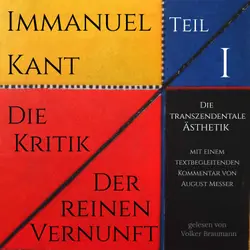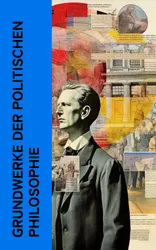Fundamental Principles of the Metaphysic of Morals Immanuel Kant - How should human beings behave toward one another? How must we behave? One of the most influential thinkers of the Western civilization, a man who profoundly shaped the mind-set of the modern world, Immanuel Kant developed his "Categorical Imperative" as a philosophical proof of the "Golden Rule," and in this 1873 essay, he elaborates upon and defends his understanding of the logical underpinnings of all human morality. Essential reading for anyone seeking an appreciation of modern philosophy, this is an intriguing and provocative work exploring the intersection of morality and reason. German metaphysician IMMANUEL KANT (1724-1804) served as a librarian of the Royal Library, a prestigious government position, and as a professor at Knigsberg University. His other works include Observations on the Feeling of the Beautiful and Sublime (1764), Critique of Pure Reason (1781), and Groundwork of the Metaphysics of Morals (1785).

Crítica de la Razón Pura
Immanuel Kant
audiobook
An Answer to the Question: What is Enlightenment?
Immanuel Kant
audiobook
Preisschrift über die Fortschritte der Metaphysik
Immanuel Kant
book
Allgemeine Naturgeschichte und Theorie des Himmels : Die kosmologische Revolution der Aufklärung: Naturgesetze und die Struktur des Universums
Immanuel Kant
book
Immanuel Kant zum Reinhören
Immanuel Kant
audiobook
Die Kritik der reinen Vernunft : Die transzendentale Ästhetik
Immanuel Kant
audiobook
Ikuiseen rauhaan
Immanuel Kant
audiobook
Träume eines Geistersehers : erläutert durch Träume der Metaphysik
Immanuel Kant
audiobook
50 Meisterwerke der Philosophie : Metaphysik, Das Gastmahl, Bhagavadgita, Tractatus logico-philosophicus, Kritik der reinen Vernunft, Also sprach Zarathustra, Selbstbetrachtungen von Marcus Aurelius
Ludwig Wittgenstein, Edmund Husserl, Karl Marx, Søren Kierkegaard, Friedrich Nietzsche, Ralph Waldo Emerson, John Stuart Mill, Georg Wilhelm Friedrich Hegel, Friedrich Schelling, Johann Gottlieb Fichte, Immanuel Kant, John Locke, Montesquieu, Jean Jacques Rousseau, David Hume, Gottfried Wilhelm Leibniz, Baruch Spinoza, Konfuzius, Laotse, Platon, Xenophon, Aristoteles, Marcus Tullius Cicero, Seneca, Epiktet, Marc Aurel, Plotin, Thomas von Aquin, Nicolaus von Cues, Erasmus von Rotterdam, Niccolò Machiavelli, Tommaso Campanella, Martin Luther, Giordano Bruno, Samuel von Pufendorf, Abbé Castel de Saint-Pierre, Michel de Montaigne, René Descartes, Francis Bacon, Blaise Pascal
book
Essenzielle Klassiker der politischen Philosophie : Der Staat, Der Gesellschaftsvertrag, Der Fürst, Utopia, Manifest der Kommunistischen Partei, Geschichte der Socialdemokratie
Niccolò Machiavelli, Montesquieu, Friedrich der Große, Platon, Aristoteles, Marcus Tullius Cicero, Tommaso Campanella, Thomas Morus, Samuel von Pufendorf, Abbé Castel de Saint-Pierre, Jean Jacques Rousseau, Immanuel Kant, Johann Gottlieb Fichte, Karl Marx, Friedrich Engels, Wilhelm von Humboldt, Friedrich Christoph Dahlmann, Franz Mehring, Johann Most, John Henry Mackay, Rosa Luxemburg, Erich Mühsam
book
Grundwerke der politischen Philosophie : Der Staat, Der Gesellschaftsvertrag, Der Fürst, Utopia, Manifest der Kommunistischen Partei, Geschichte der Socialdemokratie, Parlamentarischer Kretenismus
Platon, Aristoteles, Marcus Tullius Cicero, Niccolò Machiavelli, Tommaso Campanella, Thomas Morus, Samuel von Pufendorf, Abbé Castel de Saint-Pierre, Jean Jacques Rousseau, Montesquieu, Immanuel Kant, Friedrich der Große, Johann Gottlieb Fichte, Karl Marx, Friedrich Engels, Wilhelm von Humboldt, Friedrich Christoph Dahlmann, Franz Mehring, Johann Most, John Henry Mackay, Rosa Luxemburg, Erich Mühsam
book
Anthropologie in pragmatischer Hinsicht : Naturlehre des Menschen
Immanuel Kant
book
